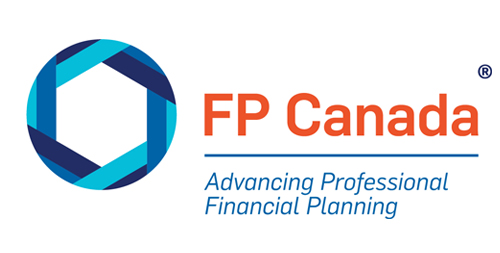Secured Credit
KNOWLEDGE EXPECTED OF: QAFP® Professionals
Highest Knowledge Level: Evaluation
Knowledge Levels and Associated Verbs
|
Awareness
The state of being aware that something exists / to have familiarity with a particular activity or subject
|
Understanding
To comprehend the general relationship of particulars / to have an expertise with how something works
|
Application
Ability to put information to use / to use knowledge for relevant, practical purposes
|
Evaluation
To judge or conclude by utilizing data / a systematic determination of something’s worth or significance
|
||||||
|---|---|---|---|---|---|---|---|---|---|
|
Define
To state exactly the meaning of
|
Identify
To be aware of / to recognize and correctly name / to locate an appropriate resource
|
Explain
To make clear the meaning of / to describe something in more detail or reveal relevant facts or ideas related to it
|
Determine
To ascertain / to come to a decision, such as by investigation or reasoning
|
Compare
To note the similarities and differences between two or more things
|
Estimate
To determine an approximate value for
|
Calculate
To find the value using mathematics
|
Convert
To change from one form or purpose to another
|
Evaluate
To reach a conclusion or make a through careful study
|
Interpret
To give the meaning of / to construe or understand / to translate orally
|
Hold cursor over or click on each term to read its definition.
- Define secured credit.
- Explain for whom secured credit may be suitable.
- Calculate the terms of a secured credit facility.
- Determine how each of these factors may impact the suitability of secured credit:
- Purpose of credit or borrowed funds
- Amount of credit requested / required
- Ongoing need for borrowing capacity
- Expected variability of interest rates
- Cost, including interest and fees
- Impact on cash flow
- Payment options (schedule, amounts, options)
- Expected prepayments
- Collateral requirements
- Expected lifetime of collateral (if applicable)
- Closure requirements / costs
- Tax impact
- Evaluate how each of the factors may impact the suitability of secured credit.
- Define types of registered charges for real estate secured credit.
- Conventional charge
- Collateral charge
- Compare a conventional and a collateral charge, specifically:
- Value of allowable registered charge
- Opportunity to register subsequent charges
- Opportunity to refinance (without registering new charge)
- Opportunity to transfer the charge
- Right of offset with respect to other debts provided by the lender
- Identify that a process exists for registering and discharging a charge against real property.
- Explain that costs may be associated with registering and/or discharging a charge against real property.
- Explain the priority interest of lenders based on the priority of the registered charge against real property.
KNOWLEDGE EXPECTED OF: CFP® Professionals
Highest Knowledge Level: Evaluation
Knowledge Levels and Associated Verbs
|
Awareness
The state of being aware that something exists / to have familiarity with a particular activity or subject
|
Understanding
To comprehend the general relationship of particulars / to have an expertise with how something works
|
Application
Ability to put information to use / to use knowledge for relevant, practical purposes
|
Evaluation
To judge or conclude by utilizing data / a systematic determination of something’s worth or significance
|
||||||
|---|---|---|---|---|---|---|---|---|---|
|
Define
To state exactly the meaning of
|
Identify
To be aware of / to recognize and correctly name / to locate an appropriate resource
|
Explain
To make clear the meaning of / to describe something in more detail or reveal relevant facts or ideas related to it
|
Determine
To ascertain / to come to a decision, such as by investigation or reasoning
|
Compare
To note the similarities and differences between two or more things
|
Estimate
To determine an approximate value for
|
Calculate
To find the value using mathematics
|
Convert
To change from one form or purpose to another
|
Evaluate
To reach a conclusion or make a through careful study
|
Interpret
To give the meaning of / to construe or understand / to translate orally
|
Hold cursor over or click on each term to read its definition.
- Define secured credit.
- Explain for whom secured credit may be suitable.
- Calculate the terms of a secured credit facility.
- Determine how each of these factors may impact the suitability of secured credit:
- Purpose of credit or borrowed funds
- Amount of credit requested / required
- Ongoing need for borrowing capacity
- Expected variability of interest rates
- Cost, including interest and fees
- Impact on cash flow
- Payment options (schedule, amounts, options)
- Expected prepayments
- Collateral requirements
- Expected lifetime of collateral (if applicable)
- Closure requirements / costs
- Tax impact
- Evaluate how each of the factors may impact the suitability of secured credit.
- Define types of registered charges for credit secured by real estate.
- Conventional charge
- Collateral charge
- Compare a conventional and a collateral charge, specifically:
- Value of allowable registered charge
- Opportunity to register subsequent charges
- Opportunity to refinance (without registering new charge)
- Opportunity to transfer the charge
- Right of offset with respect to other debts provided by the lender
- Identify that a process exists for registering and discharging a charge against real property.
- Explain that costs may be associated with registering and/or discharging a charge against real property.
- Explain the priority interest of lenders based on the priority of the registered charge against real property.



 previous / Unsecured Credit
previous / Unsecured Credit